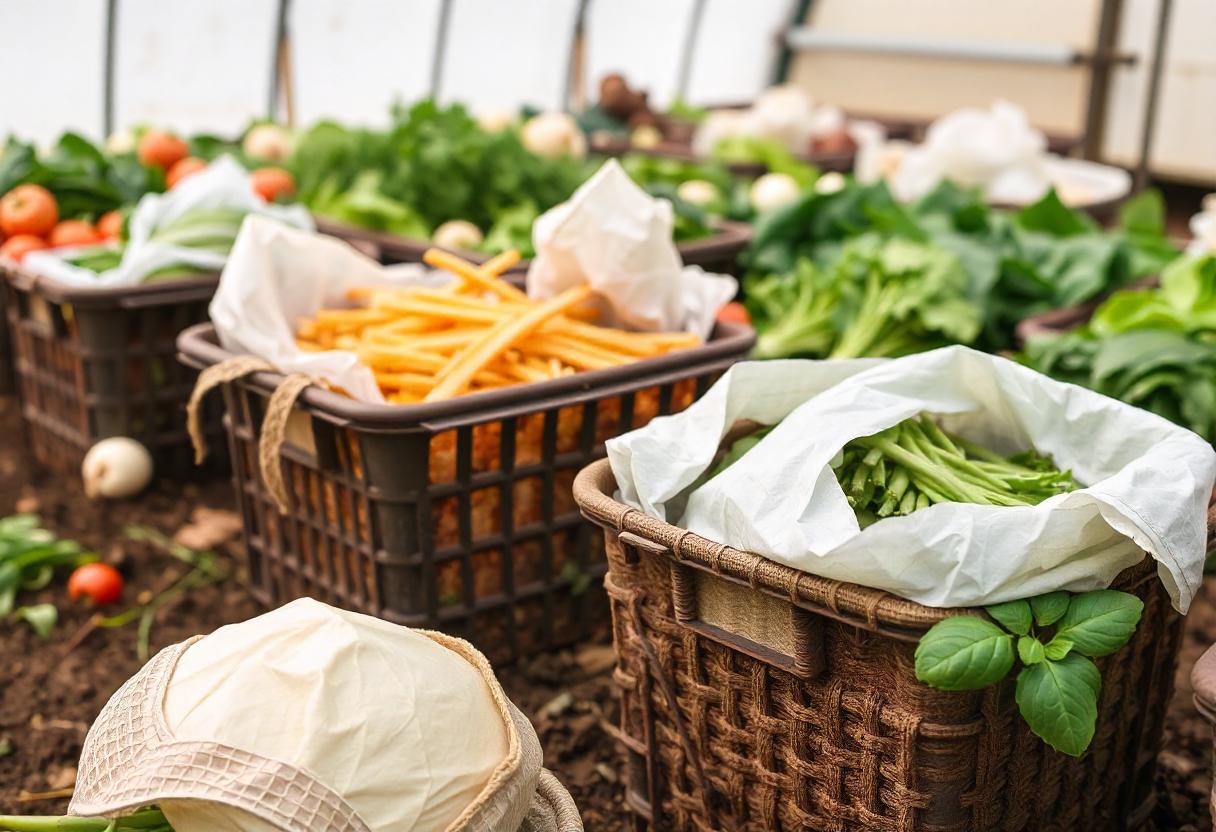
Introduction
Food waste is a growing concern globally, and agriculture is a key sector where this issue must be addressed. Food waste reduction and recycling in agriculture not only benefit the environment but also contribute to economic savings and enhance food security. This article explores various strategies and approaches that can help minimize food waste and promote recycling within the agricultural sector.
Causes of Food Waste in Agriculture
In agriculture, food waste occurs at multiple stages, including during harvesting, post-harvest handling, and transportation. One of the primary causes is the loss of crops due to improper harvesting techniques, pest damage, and unfavorable weather conditions. Additionally, aesthetic standards set by retailers often result in the rejection of edible but imperfect produce, leading to significant wastage.
Farmers also face challenges with overproduction, where they grow more food than the market can absorb. This surplus often leads to food being discarded before it even reaches consumers. Inefficient storage and lack of infrastructure to properly store and transport crops further exacerbate food loss.
Food Waste Reduction Strategies
To tackle food waste in agriculture, several strategies can be implemented:
- Improved Harvesting Techniques: Adopting better harvesting methods and machinery can minimize crop losses in the field.
- Use of Smart Technology: Precision agriculture tools, such as drones and sensors, can help farmers monitor crop health and predict yield more accurately, reducing overproduction and food loss.
- Better Post-Harvest Handling: Educating farmers about proper handling techniques, such as using temperature-controlled storage, can prolong the shelf life of produce and minimize spoilage.
- Changes in Retail Practices: Encouraging retailers to relax aesthetic standards for fresh produce can help reduce food rejection and waste at the source.
Recycling Organic Waste in Agriculture
Organic waste recycling is an essential aspect of food waste management in agriculture. Instead of discarding agricultural waste, farmers can recycle it into useful products, reducing environmental impact and creating new opportunities.
- Composting: Composting organic farm waste, such as crop residues, weeds, and manure, turns waste into nutrient-rich soil amendments. This practice not only helps improve soil fertility but also reduces the need for chemical fertilizers.
- Anaerobic Digestion: Anaerobic digestion of organic waste generates biogas, which can be used as an energy source. The leftover material, known as digestate, is a valuable fertilizer for crops.
- Livestock Feed: Surplus or imperfect crops that are not fit for human consumption can be diverted to animal feed, reducing waste while supporting livestock production.
Role of Circular Economy in Agriculture
The concept of a circular economy promotes the continuous use of resources by recycling and reusing materials. In agriculture, this approach can help minimize waste and optimize resource use.
- Resource Efficiency: Implementing resource-efficient practices, such as using crop residues for bioenergy production or feeding livestock, keeps waste out of landfills and contributes to sustainable farming.
- Water Recycling: Water used in agricultural operations can be treated and reused, reducing water waste and supporting more sustainable practices in water-scarce regions.
- Integration of Waste Streams: By integrating waste streams from different agricultural operations, farmers can create closed-loop systems where waste from one process becomes an input for another.
The Role of Policy and Consumer Awareness
Governments and institutions play a critical role in shaping policies that encourage food waste reduction and recycling in agriculture. Policies that provide incentives for sustainable practices, subsidies for waste recycling technologies, and support for research into innovative solutions can make a significant difference.
Consumers also play a part by supporting sustainable agriculture and being more mindful of food waste. Educating the public about the environmental and economic impacts of food waste can drive demand for food grown with minimal waste and encourage responsible consumption habits.